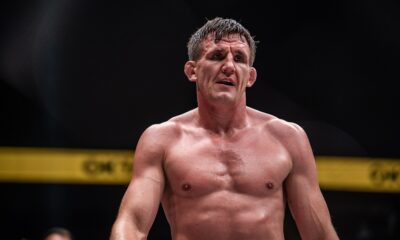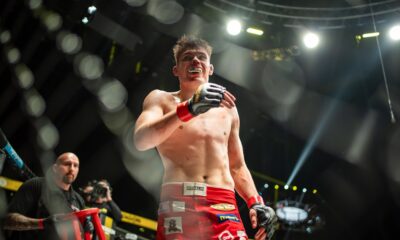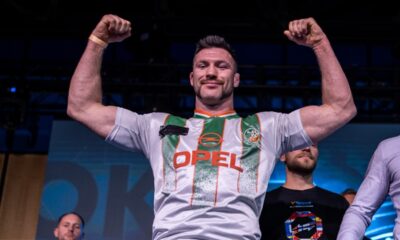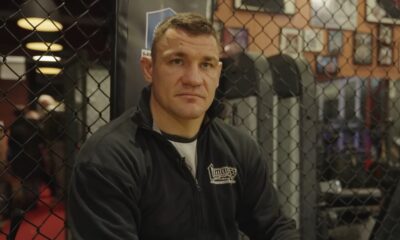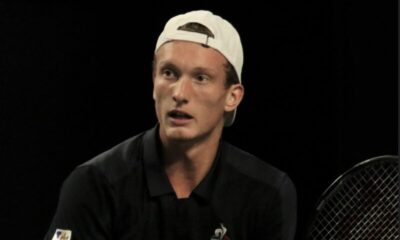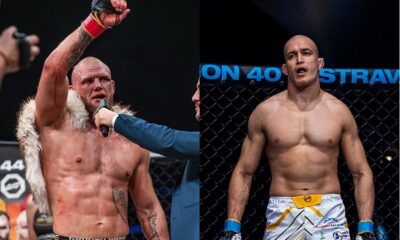Football
Jaroslav Navrátil: Kisvárda? I’ll feel like I do here in our village in Šitbořice. Hungarian is a crazy language
Forward Jaroslav Navrátil scored goals for Dutch clubs Heracles Almelo and Go Ahead Eagles. In the last three seasons he has been wearing the jersey of Hungarian Kisvárda, with whom he is trying to chase Ferencváros Budapest.
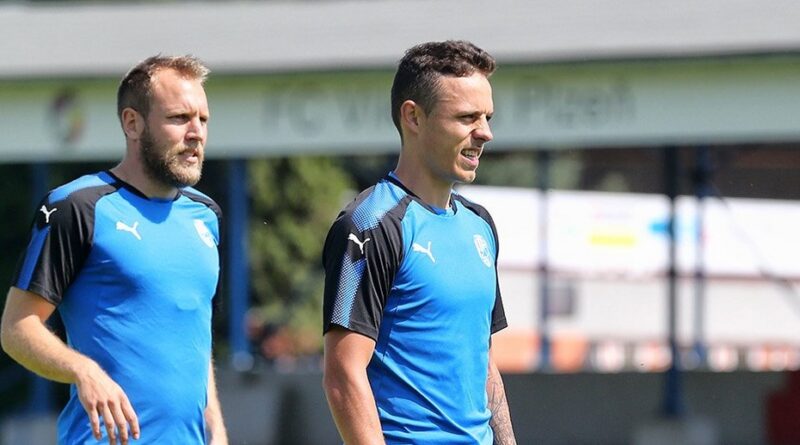
Forward Jaroslav Navrátil scored goals for Dutch clubs Heracles Almelo and Go Ahead Eagles. In the last three seasons he has been wearing the jersey of Hungarian Kisvárda, with whom he is trying to chase Ferencváros Budapest. In an interview with Ruik, the experienced striker talked about his future or revealed how he is doing in Hungarian.
It’s been almost three years since we interviewed. At that time you were a free agent and you were dealing with your future. Eventually, you made a deal in Kisvárda, Hungary, where you are still working today. How happy are you in Kisvárda?
Well, for the first two seasons there was overall satisfaction because we had a historic success, finishing fifth and second in the league. We even played two Conference League preliminary rounds.
At the same time, I played most of the games, so I was really happy. We were 2-3 going into this winter, but now we’re on a bad streak of not winning a game we dominate.
What made you decide to sign for this Hungarian club all those three years ago?
Money definitely played a role in the decision. It was in the coronavirus era, and my manager and I talked about the fact that I was already 28 years old and should think about some kind of security for the future.
You live in the small town of Kisvárda, how do you live there?
Kisvárda has some 15,000 inhabitants, but it feels like our village in Šitbořice. So it is a quiet town where my family and I are happy. It’s also quite far from the bigger cities. For example, it takes about an hour and a half to get to Debrecen. And to Budapest it’s about three hours.
This is your third season in Hungary, what are your impressions of football there compared to, for example, the Netherlands?
Football here is very much about battles. A few clubs play in attack with tall strikers, so they only play kicked balls. Or they defend and play on the counter-attack, trying to catch the opposition’s defence off guard. As far as the fans are concerned, it doesn’t compare to Holland.
There, they have full stadiums for certain games, even in the second league. In the Eredivisie, the stadiums are almost always sold out and the people there just live for football. Here, we get about 1 500 fans, and when Ferencváros comes, we get maybe 3 500 fans.
The situation is similar everywhere in Hungary except Ferencváros. As far as the facilities are concerned, they are really good. It’s just that sometimes I miss the right people who can take care of certain things.
The Hungarian league has been dominated by Ferencváros in recent years, how big is the difference between the Hungarian champion and the other clubs?
Ferencváros is completely different. They have completely different financial possibilities than other teams. Some clubs have downright only local players, but Ferencváros has a lot of foreign players who are the difference. They play European cups every year, where they don’t have bad results either.
In the league they have some eleven point lead. They also have a lot of fans, not only in Budapest but all over Hungary. They are just completely different in everything.
How do you see your future in Kisvárd? Are you looking for a new challenge?
I have one more year on my contract. I extended my contract for two years in the summer, when I also mentioned that I would not extend it any longer. My older son will be five next year and will have to go to school, so we will probably return to the Netherlands. At most I would still consider a club in Budapest if there is interest, because there are foreign schools there.
How are you getting on with your Hungarian? Have you learned this difficult language or do you make do with English there?
Hungarian is a crazy language. Luckily we have a lot of foreign players in the team, so even the coach speaks only English. I’ve picked up some words, and of course there are some classic swear words. (laughs)
It’s been ten years since you moved to Heracles Almelo in the Netherlands and you’ve been in top-flight football. We talked about your journey from Breclav to the Eredivisie in our last interview. As I said, it’s been ten years and you’ve managed to establish and maintain yourself in professional football. What does that mean to you, andwhat’s behind it?
It was a dream come true when I could play in Holland in sold-out stadiums where the atmosphere was always amazing. I’m sure there was hard work and a lot of sacrifice behind it. It’s some basis for success, but nothing is guaranteed. You also need a lot of luck and you must never give up. Just look at Wout Weghorst, who I played with for the Heracles.
He came to us from the second league and now he’s playing in one of the best competitions in the world, playing for the famous Manchester United. He also made his mark at the World Cup, scoring two goals against Argentina. As they say, everything is possible in football. (laughs)

